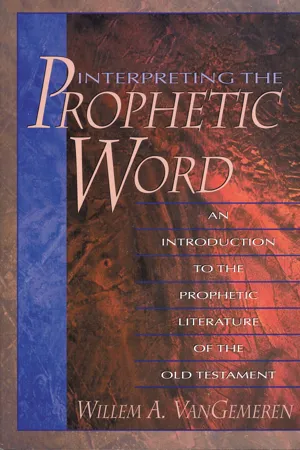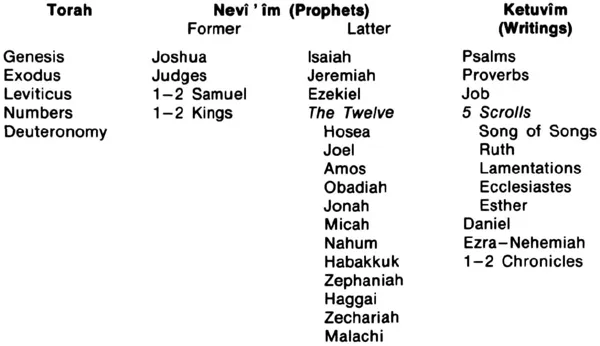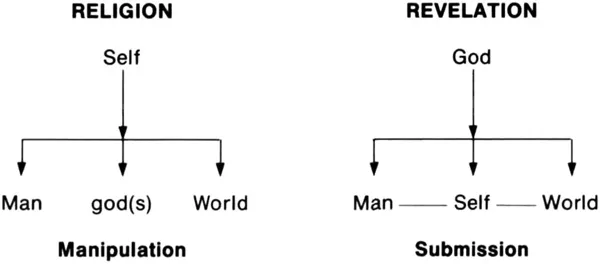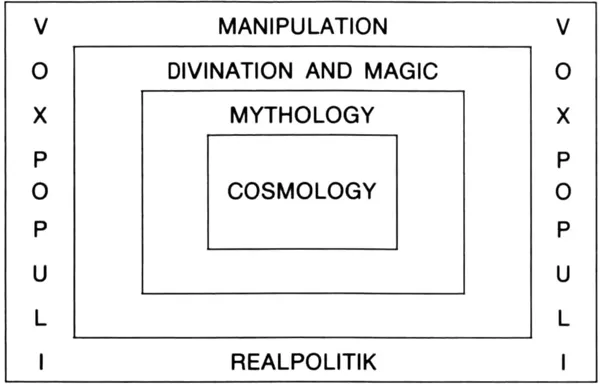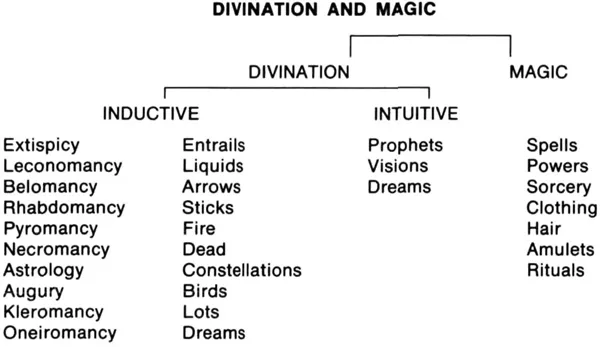![]()
Part 1
The Prophetic Phenomenon in Israel
![]()
Introduction to Part 1
The prophets of the Old Testament were God’s ministers of the Word during the Mosaic administration. They had seen something of the glory of God and expressed in poetic form the vision of God, his kingdom, the messianic age of shalom (“peace”), the work of the Spirit, a new community of people, and the transformation of creation and humanity. The prophetic message of salvation (1 Peter 1:10 – 12) is rich, embracing the work of the triune God in restoring creation to a state of shalom, in which the children of God live by his order, enjoy his benefits, and will no more be oppressed by Satan, enemies, misunderstanding, or physical distress.
Our Lord explained his mission using these Old Testament writings. To his disciples he said, “Everything must be fulfilled that is written about me in the Law of Moses, the Prophets and the Psalms” (Luke 24:44). From this we learn that everything in the Old Testament has its proper focus in Jesus Christ. A Christian reading the Old Testament cannot but pay careful attention to the relationship between the Old Testament and our Lord. Each division of the Old Testament, including the prophetic writings, relates to our Lord. These Scriptures are God’s Word to his people, and the authority of that Word has not been diminished since the coming of Jesus Christ. The very basis for apostolic preaching was the Old Testament.
The three divisions (the Law, the Prophets, and the Psalms) of which our Lord spoke reflect the three divisions of the Hebrew Bible (Tanakb: Torah, Prophets, Writings).1 The Prophets (nebî’îm) consist of the “Former Prophets” (nebî’îm rî’šônîm: Joshua through 2 Kings, except Ruth) and the “Latter Prophets” (nebî’îm ’ aḥarônîm: Isaiah to Malachi, except Daniel and Lamentations). (See figure 1.)
The Law, the Prophets, and the Writings (including Lamentations and Daniel) form the Scriptures of the Jews and are to be treated as God’s Word by Christians.2 The Christian Bible consists of two parts: God’s Word before the Son and God’s Word after the Son. The two parts relate to each other similarly to the way we commonly designate 1 and 2 Samuel, Kings, and Chronicles.
God’s messengers before Christ (the prophets) and God’s messengers after Christ (the apostles) encourage us to persevere in waiting for the new age of righteousness, justice, and absolute joy. All who respond in faith to the promises of God live both in the grateful enjoyment of his present benefits and in the hope of the realization of the fullness of the new age. The prophetic revelation—as God’s Word regarding his Messiah—bridges the era between Moses and our Lord, but as God’s Word regarding the salvation to come, it bridges the gap between Moses and the new creation.
Figure 1. The Books of the Hebrew Old Testament
![]()
CHAPTER 1
The Development of Prophetism
Introduction
Revelation and religion
Revelation
Religion
Divination
Magic
Revelation contra religion
Forms of divine revelation
Revelation against religion
Realpolitik and vox populi
Revelation and wisdom
Conclusion
The development of prophetism in Israel
Moses: the fountainhead
Moses: the servant of Yahweh
Moses: the mediator of the covenant
Moses: the eschatological prophet
Moses: the fountainhead of the prophetic tradition
Conclusions
Samuel: the prophetic role model
The era between Moses and Samuel
Samuel: the servant of the Lord
Samuel: the guardian of the theocracy
Elijah: the covenant prosecutor
Elijah: the beginning of the end
Elijah: the message of the classical prophets
The spirit of Elijah
Review
INTRODUCTION
The prophets opened windows to the grand plan of God by which the eye of hope may have a vision of what God has prepared for his people. The prophets spoke in time as they were human beings empowered by the Holy Spirit to speak God’s word in space and time. Yet the prophets spoke out of time as their writings reflect more than the historically and culturally conditioned collection of Israel’s prophets. The Lord empowered the prophets by the Spirit to proclaim and write down the revelation he gave them as a witness for future generations.
The prophets bore a message of transformation in a historical context to people who were complacent with their abilities and achievements. They spoke of God’s imminent judgment on all humanity, including Israel and Judah, because humankind rebelled against the Lord, the King of Glory. They announced the coming kingdom of the Lord, the Judgment, and the transformation of creation.
The prophetic vision of God’s glorious kingdom shattered the reality of human kingdoms and structures but also shaped the vision of a remnant that lives in harmony with God. The prophets posited a sharp antithesis between God’s kingdom and human kingdoms, divine revelation and human religion. The distinction between revelation and religion is fundamental in understanding the nature of the prophetic role and in interpreting the prophetic message.
REVELATION AND RELIGION
Revelation
The Lord favored Israel with his revelation. They received his oracles as well as the promises, covenants, adoption to sonship, and manifestation of his glory (Rom. 3:2; 9:4 – 5). His relation to Israel was full of grace and promise as he guided his people to be a royal priesthood (Ex. 19:5 – 6) in all their activities (personal, liturgical, economic, societal, and political).1 He led them into his way of wisdom so that they might receive his peace and the fulfillment of his promises (Isa. 48:17 – 19). By loving God and by submitting to his revelation, Israel was destined to become a wise nation, guided, protected, and blessed by the Lord (Deut. 4:6 – 8; 26:19).
Israel was unique in their claim to divine revelation.2 God, the King of this world, had given Israel his revelation by which they might prosper on his earth. He willed to guide his people to himself and promised to lead them into the way that would lead into an era of rest and joy (Isa. 48:17 – 19). All he expected was faith, devotion, and submission to his instruction. Under those conditions Israel would develop a counterculture among the nations and enjoy the benefits of God’s kingdom (Deut. 30:11 – 14; Rom. 10:6 – 8).
God’s revelation was his gift to Israel. He had brought them out of Egypt into Canaan. He had instructed, comforted, fed, guided, disciplined, and promised to be with Israel in prosperity and adversity. He was Israel’s King and Warrior, who had solemnly sworn to take all of Israel’s concerns to heart! He had also promised to take care of them in the present and to secure their future. It made no sense to seek any other god or power because Yahweh, the Creator of everything, is King, and all things are under his control. But revelation demands a response of absolute loyalty and submission to the God who has spoken. (See figure 2.) Any deviation from the way of revelation, slight as it might be, degrades revelation into religion.
Religion
The nations around Israel were religious. They also sought “divine” guidance. They, too, desired to live in peace and enjoy prosperity. To obtain these ends, they sought to know the will of the gods through professional diviners, magicians, enchanters, and interpreters of dreams. They made every effort to maintain harmony between the society of humans and the world of the gods.
Figure 2. Religion and Revelation
Religion is a system of belief and morality that gives human beings a sense of meaning, but as a system, it is defined and developed by human beings. Religion defines for human beings how they may live at peace with their environment.3 Religion begins and ends with man.
Religion is an attempt to explain what has happened, what is happening, and what may happen. In primitive societies people live in constant fear that the gods may become angry. To avoid catastrophe, they endeavor to please the gods through prescribed rituals. In the absence of revelation they depend on professional priests and diviners to ascertain what the gods desire. Whether in war or in peace, in adversity or in prosperity, they seek to know what they should do to advance their goals and to control the desired outcome. In this, humans
Figure 3. Religious Framework of Reference
are very religious. Though the methods and nature of these religious expressions differ from society to society, humans in the most technological and secularized society have much in common with their fellow humans in the most primitive society. Superstitions, science, techniques, and phobias bring humans to the same basic issue of life: how can I control my destiny?
Religion is manipulative. In their crises humans are very adept at looking for and finding salvation. “Salvation” is that complex of acts, structures, and institutions by which human beings individually and collectively define, determine, and control their happiness. (See figure 2.) Salvation is understood differently by each nation and culture, as shaped by their cosmogony, mythology, divination, and magic. (See figure 3.) Cosmology supplies a structure for understanding how the world came into being, how it is ordered, and how supernatural phenomena relate to it. Mythology supplies an interpretation of human experience and custom. It is a more comprehensive framework within which individuals and society understand themselves and in terms of which they explain all that is beyond rational explanation.4 Divination and magic provide a bridge between the world of the supernatural and that of humans, one by which humans aim at some special insight or power in controlling their destiny.5
Divination6
Divination (the mantic) is the practice of knowing the future; it occurs in two forms: inductive and intuitive.7 (See figure 4.) When a diviner uses an object (“omen”), divination is of the inductive type. The object or omen may be a natural event (signs in the sky), unusual phenomena (the behavior or noise of animals),8 or a ritual involving water, oil, fire, arrows, or lots. The intuitive form of divination occurs when an individual acts as a medium to give a word from the gods.
Figure 4. Divination and Magic
The ancients developed many techniques of divination.9 In Assyria and Babylonia the bārû (“seer”) priests, an important caste of diviners,10 specialized in examining the entrails of sacrificial sheep (extispicy). They looked for a sign by “seeing” the position of the internal organs (liver,11 gall bladder, stomach, etc.).12 The bārû were consulted by kings at court and by generals on the battlefield.13 They wrote manuals and instructed novices in the art of divination.
Other forms of divination include interpreting dreams,14 liquids,15 and fire;16 casting lots;17 shooting arrows;18 throwing sticks;19 mediums’ consulting the dead (necromancy);20 using teraphim;21 watching the behavior of animals;22 and observing signs in the heavens (astrology or astromancy).23 Regardless of the technique, the diviner believed that the gods gave humans an omen. The diviner did not claim infallibility but offered probability. Therefore, he used a variety of...
